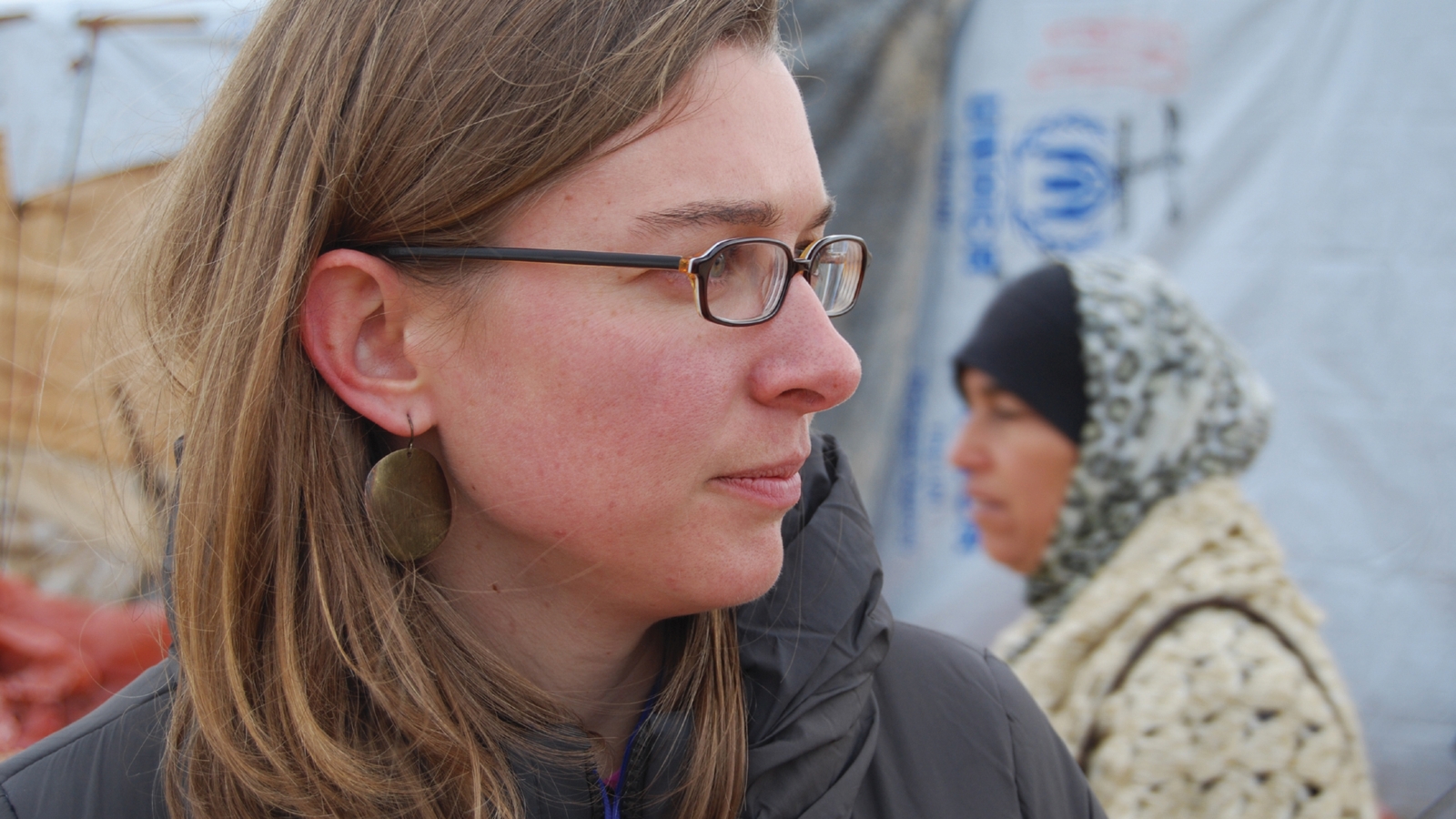Experience + Academics = Policy
Political science doctoral candidate Meghan Garrity is using her past as an aid worker to inform her research.

Meghan Garrity has been on the ground with refugees, working with the International Rescue Committee in Jordan and Turkey from 2012 to 2016. Now she’s exploring ways to prevent some refugee crises, by examining what causes states to expel mass groups of people.
Before she came to Penn Arts & Sciences to earn her Ph.D. in political science, Garrity worked around the world with humanitarian non-governmental organizations. In Haiti, South Sudan, Ethiopia, and Kenya, she was part of a team that would arrive immediately after emergencies like the Haitian earthquake. They would assess the situation, write proposals, and start up the aid programs, “then pass the baton,” she says. “But I realized I actually wanted to stay and see if these programs were successful.”
She began working for the International Rescue Committee in Jordan and Turkey, ultimately managing a $45 million portfolio of Syrian crisis response programs and a team of 1,600 staff and volunteers as Deputy Director of Programs in Antakya, Turkey.
“After working on Syria for four years I was sort of disenchanted with the humanitarian field, and I wanted to understand more of the political undertones of what was really going on—what was driving these crises and why weren't we able to come up with solutions to them,” she says. “I felt like the humanitarian sector was sort of the Band-Aid on the bullet hole.”
Her experience as a student was informed by her work in the field: “Whenever I was writing a paper or in class, l would always think, okay, what is the practical implication of this? We study a lot of political science theories. Well, what does that mean on the ground? Does this abstract concept actually apply? Does it work? Do we care?”
After working on Syria for four years I was sort of disenchanted with the humanitarian field, and I wanted to understand more of the political undertones of what was really going on—what was driving these crises and why weren't we able to come up with solutions to them.
For her dissertation topic, Garrity chose to examine mass expulsion events, in which a state expels part of its population with the goal of removing a specific ethnic, racial, religious, or national group. All regions have expelled some people at some time, she says. There have been 139 mass expulsion events in the 120 years she is looking at, from 1900 through 2020. “It's a rare event, but it's a recurring rare event.”
She’s focusing on four pairs of events. In each pair, the motivations were similar, but in one case the group was expelled and in the other it was not. One pair, for example, compares Nigeria’s expulsion of African migrants versus South Africa, which refrained from expulsion despite similar pressures. Garrity’s goal is to determine the factors that made the difference, in order to create policies to discourage future expulsion events.
The factors she’s identified are domestic and transnational alliances, whether the partners of the expelling state are in favor of the expulsion, and the reaction of what is considered to be the homeland state of the group to be expelled as well as the response of the international community. “Currently, much of the literature says the international community is a force for good,” says Garrity. “They can be a constraint, but I've actually found that they can be on both sides.”
She plans to include specific policy recommendations in her dissertation. During 2021, she had a pre-doctorate fellowship at the U.S. Institute of Peace, where the goal was to help shape her work to better inform policy makers and practitioners.
Garrity’s research also enabled her to create a data set of mass expulsion events, which will be published in the Journal of Peace Research. “I hope it will be helpful for other researchers within political science, but other fields as well: history, law, possibly sociology,” she says. “Part of the development of the data set is to document these cases, some of which are less known than others, but also to carve out mass expulsion as a distinct concept that should be pursued and analyzed in its own right.” Rather than just counting the people who left and their outcomes, Garrity believes, we should analyze the intent of the states.
Beyond that, she’s working on another paper that argues that the concept of ethnic cleansing needs to be taken apart as well. “Ethnic cleansing includes genocide, it includes expulsion, it includes forced assimilation,” she explains. “We’re conflating the intent to annihilate with the intent to remove with the intent to forcibly assimilate. We should separate those out into distinct concepts. I think it has important implications for the different type of policy recommendations that would be called for.”
Garrity will receive her doctorate in the spring and has accepted a position at the Harvard Kennedy School’s Belfer Center for Science and International Affairs as a postdoctoral fellow in the International Security Program.



